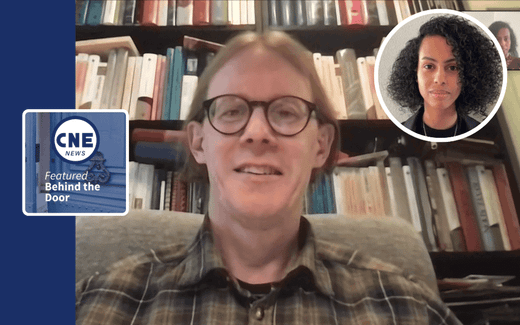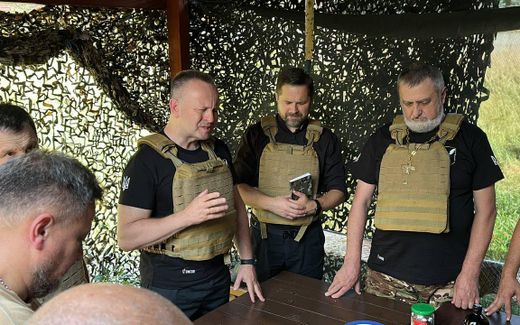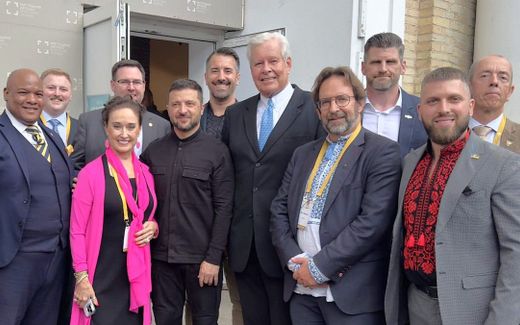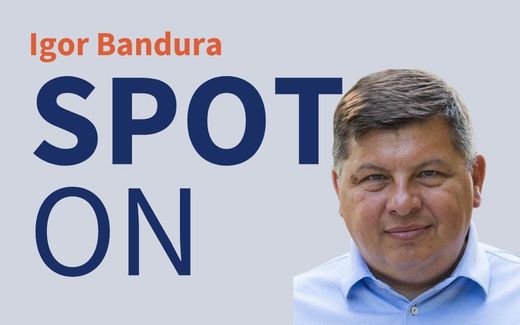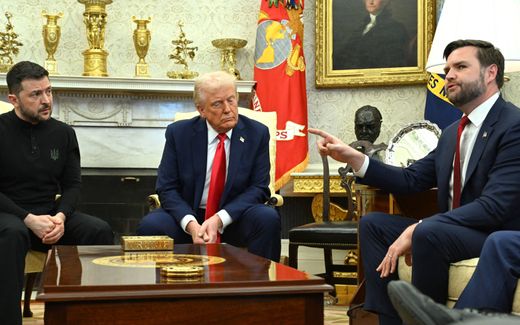Leading a church and a family in the middle of a war
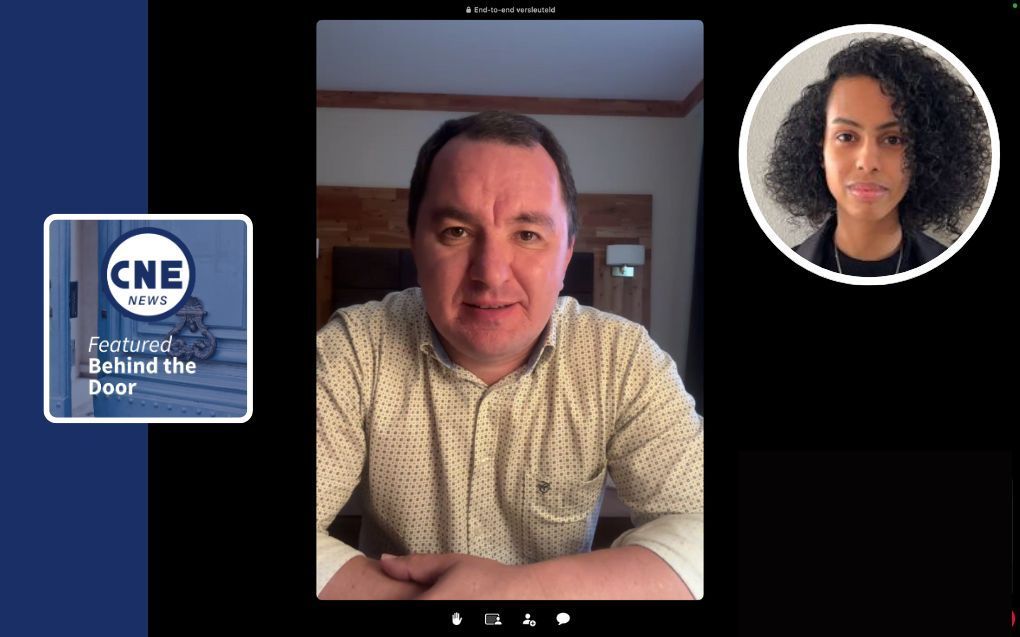
Yuriy Kulakevych. Photo CNE, Canva
Christian Life
Nothing changed Yuriy Kulakevych’s work so much as the Russian invasion. He is a church leader in a country torn by war. What does having this kind of responsibility mean amid so much violence?
Stay up to date with Christian news in Europe? Sign up for CNE's newsletter.
On the first day of the war, Ukrainian Pentecostal Church teams used 601 vehicles, many buses and vans to evacuate people from war zones, with their department directors and presbyters responsible for humanitarian hubs in the regions. The invasion drastically changed the work of pastor Kulakevych, who is a member of the national leadership team in the Ukrainian Pentecostal Church and is responsible for the Department of External and Foreign Affairs in his church.
How did you prepare for something of this scale before it even began?
“When we learned that Russian troops were stationed next to the Ukrainian border in Belarus, we talked to our pastors in the Luhansk and Donetsk regions who had experienced the war in their area since 2014. They shared their experience on preparing the churches and people nationwide for a battle, and we developed a plan.
We appointed people for transportation, accommodation, funding, etc., in every regional fellowship of the churches.
Less than 12 hours before the invasion on February 24, 2022, we did a final check via Zoom. We talked to our director’s departments and those responsible for regional humanitarian hubs. Many of us have already heard from others that we could in no way escape the attack. And less than 12 hours later, there it was.
We were not ready because we were competent or experienced. Instead, it was a wish, a push from the Lord to start preparing, creating teams, connecting people in additional communication lines, etc.”
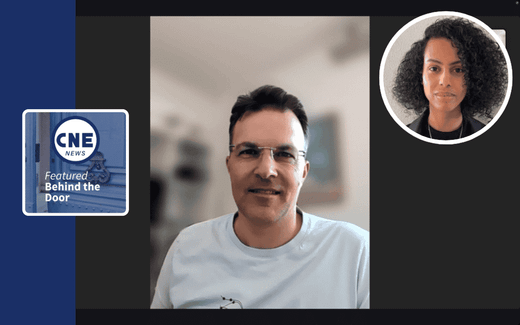
What is it like to be a church leader during a war?
“During the war, you realise that everything is dedicated to rescuing lives and bringing people to personal knowledge of Jesus Christ, what He did for us and what His power can provide for us in our daily struggles.
Evangelism and church planting really matter, as do post-trauma healing programs. The church is the only institution that brings spiritual treatments from the Creator of mankind to people wounded by war.
The war also teaches us to value every single day and hour, much more than before the invasion. In Ukraine, people joke, “if we survive the night, we will do this and this tomorrow. If not, we will not.”
How did you become a church leader?
“My grandfather was a Pentecostal pastor during the Soviet occupation of Ukraine. When Ukraine became independent in 1991, my generation understood what freedom was. That it meant that we were to continue the ministry of our fathers.
That is when I enrolled in the Kyiv Bible Institute, one of the leading Pentecostal schools here. We planted churches in and near Kyiv and developed the ministry. Later, I was invited to join the national leadership team of our denomination, the Ukrainian Pentecostal Church.
Besides being a pastor of one of our churches in Kyiv, I have been responsible for our Department of External and Foreign Affairs. I must deal with the church’s connections with other denominations, NGOs, government offices and secular media. In addition, I manage our contacts with sister churches in other countries.”
How can Ukrainians remain strong and hopeful at a time like this?
“Generations in Ukraine still remember the hardships of Soviet occupation, and this history has taught them resilience and reliance on God. Amid war and crisis, many are turning to Christ after witnessing the unwavering compassion and faith of Evangelical believers who continue to serve their neighbours. These believers offer practical help—food, medicine, and care—while also sharing the message of Jesus, leading many to seek reconciliation with Christ.
Despite the darkness of war, there is a spiritual awakening, with thousands being baptised and dozens of new churches planted, even in active war zones like the Kharkiv region.
Local residents are also becoming involved, helping others and joining ministry efforts, feeling trusted and valued rather than pitied.”
What is a good way to deal with war trauma?
“One of the state’s officials told us once, “we will rebuild the walls, roofs and roads, but you, the church, help us heal the nation’s soul.
We established a special post-war trauma healing department in May 2022. We gathered as much knowledge as we could about healing war traumas from all over the world.
Besides, our churches are building relations with the families of soldiers. We give them gifts for holidays and activities during the summer holidays, and or take care of the children on the weekend, sometimes on behalf of their fathers.”
Why did you choose to stay in Kyiv during the war?
“Most of us pastors stayed in here since the beginning of the invasion. None of us actually thought of leaving during that time. There was firing 200 meters from my home. But we understood that if we left while people from the church stayed, we would not be welcomed back if we returned after the war.
We took the women and children to safer regions. When some men saw that the church took care of their families, many of them came to our pastors and said, “Since you rescued our families, we will stay with you, do whatever you do, and go wherever you go.” So, they went with us to Bucha, Irpin, and Borodyanka to deliver goods and help people in every possible manner."
What sustained you in those uncertain moments?
“Our deep commitment to the Lord, who rules our lives in every situation. And in practice, we often say that we, as civilians, did not even recognise the danger of this battle. Sometimes, soldiers would not let our teams into certain areas, because it would be too dangerous. Later, we learned that they were right. We believe that the Lord used the military personnel to protect us.”
What has been the most helpful support from international churches and NGOs?
“First, churches of many neighbouring countries sent vehicles to the borders immediately after the invasion to pick up people leaving the country. We appreciated it very much. It showed the power of the global body of the church.
Second, humanitarian support, such as food, medicine, and fuel, was mainly provided by the churches and small charities at the beginning of the war. One of the governmental officials said that “over 70 per cent of all the goods and support we received in Ukraine come from Western Protestant countries.” They clearly recognise the power of the church in the West.
What we need at the moment are post-trauma caregivers, psychologists, educators, church planters and missionaries. During the war, dozens of churches were planted behind our western border. We need more ministers and more rooms or houses for places of worship.”
What influence does the war have on the relationship between leaders from different denominations?
“When the war began, churches responded quickly, working closely with the government to provide humanitarian aid and support. Religious leaders across denominations shared resources freely, helping each other to deliver supplies to those in need. These actions have strengthened public trust in the church, which remains one of the most respected and relied-upon institutions in Ukrainian society.”
Family life
Yuriy and his wife Marina have been married for 22 years. They have four children who are all in school and involved in the ministry. Yuriy and his wife try to make their lives as normal as possible by getting them out of the city during summer holidays and taking them to more peaceful regions. They also send their children to their friends to have fun.
Has your understanding of faith and prayer changed since the invasion?
“It matured. We can all read and memorise the Bible, but now we are to practice it. Now, I must show its meaning in reality to myself and people around me, so they can see that the Bible texts are not just words, but they really mean something for life.”
How do you see the future as a Christian in your country?
“I tell everyone the best is yet ahead of us. We pray, work and expect a plentiful harvest of souls in Ukraine. I believe that the war will be finished in such a way that no one will say that they made it possible. We pray that Ukraine and the rest of the world will see it and proclaim peace from the Lord.
We expect a great revival in Europe with the participation of the Ukrainian church. As Pentecostals, we have heard many prophecies about it for decades; maybe the time of fulfilment has come now.”
Six dilemmas
Blazer or Jumper? Blazer.
Are you an evening person or early bird? Evening person.
Tea or coffee? Tea.
Public transport or taxi? Public transport.
Would you rather read a book or watch TV? Read a book.
Listening to music or doing sports? Listening to music.
Related Articles


